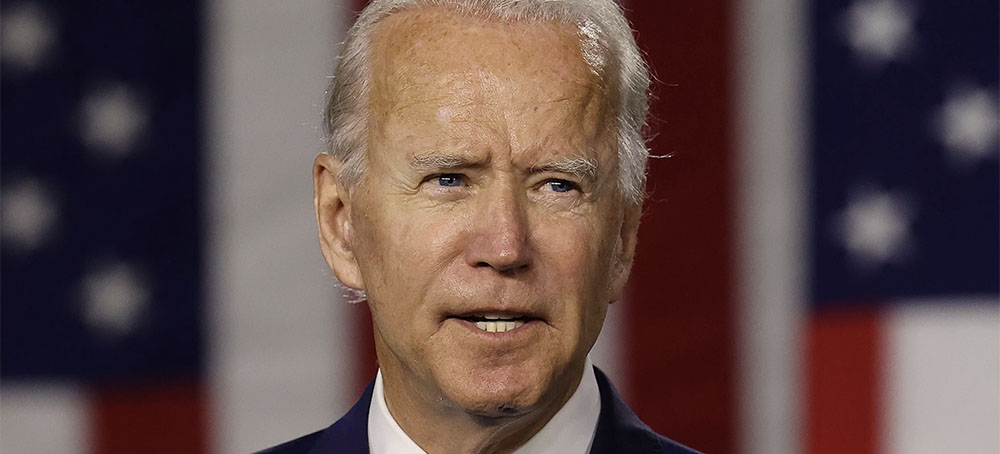
04 November 21
Live on the homepage now!
Reader Supported News

Sarah Jones | The Hillary Playbook Does Not Work
Sarah Jones, New York Magazine
Jones writes: "Terry McAuliffe's failure to capture another term as Virginia governor is ultimately rather easy to comprehend."
Terry McAuliffe’s failure to capture another term as Virginia governor is ultimately rather easy to comprehend. The state party is loyal to the former governor, and lined up behind his candidacy early. For this reason, the nomination was always his to lose. But the party had set a trap for itself. Its preferred candidate was well known and not particularly popular. Had Glenn Youngkin been a different kind of Republican – a Ken Cuccinelli, defeated by McAuliffe in 2013 – the Democrat would’ve had a decent chance of success.
But this is not 2013, and Youngkin ran an intelligent campaign. While he whipped white suburbanites into a frenzy over parental choice in public schools, he kept Donald Trump at a distance. He figured out how to tap into racial grievance politics, as Trump did, while putting a more palatable public face on his right-wing politics. And McAuliffe had no effective response. Though the Democrat ran on issues like a $15 minimum wage, he tried, repeatedly, to yoke Youngkin to Trump. A vote for McAuliffe was a vote against Trump, or so he wanted the state’s suburbanites to believe. To white rural voters, like those in my native southwest Virginia, the linkage of Youngkin to Trump likely proved attractive and I believe it is conceivable that McAuliffe may’ve done Youngkin a favor in these areas.
To recap: Virginia Democrats united behind an unpopular Democrat who spent years in public life and ran on not being Trump while failing to offer voters a compelling alternative vision. That strategy didn’t work in 2016 when the candidate was HIllary Clinton, and there was no way it was going to work now. While it’s arguably true that the GOP remains the party of Trump, and that a reactionary lurks behind Youngkin’s polite facade, reality does not necessarily dictate voter behavior. Moreover, McAuliffe didn’t actually have to try to convince anybody that Youngkin is a reactionary at all. He just had to explain what he, in contrast to Youngkin, would offer to voters, and since he’s already served one term as governor this shouldn’t have been difficult to accomplish. Yet it was beyond him.
Instead of running a version of Clinton’s failed 2016 campaign, McAuliffe should have borrowed from Joe Biden, who in 2020 ran to Clinton’s left and emphasized economic issues on the campaign trail. Even then, the fact that Trump was the sitting president helped carry Biden to a narrow victory, and McAuliffe didn’t have that advantage. His margins were always going to be narrower than Biden’s, with significantly less room for error. That McAuliffe didn’t have the political skill to navigate such turbulent water in a state he’s already served as governor reflects on him, and his enablers — not the left, not even Biden.
The Democratic Party and its state affiliates are going to have to remember that Trump is not on the ballot or in power. They cannot hope that voter antipathy for him extends to the entire Republican Party in perpetuity. Nor is centrism, and the suppression of the party’s entire left flank, a guaranteed path to victory. The party has to figure out what it stands for apart from its contrast to Trump and Republicans. The best time to do so was years ago. The next best time is now.
READ MORE
 U.S. troops in Afghanistan. (photo: Getty)
U.S. troops in Afghanistan. (photo: Getty)
Nick Turse | Was the Afghan War a Schell Game? Getting It Right Is Always the Wrong Approach When It Comes to America's Wars
Nick Turse, TomDispatch
Turse writes: "I waited almost three months for some acknowledgement, but it never came. Not a bottle of champagne. Not a congratulatory note. Not an email of acknowledgement. Not one media request."
In 2006, Newsweek dubbed him “a rising star” and one of the “Jedi knights who are fighting in what [Vice President] Cheney calls ‘the shadows.'” The particular Jedi knight being touted to the skies was Army General Stanley McChrystal, then running the Pentagon’s super-secret Joint Special Operations Command. And such language only multiplied, when, in 2009, he was put in charge of the Obama administration’s “surge” in Afghanistan, which would reach 100,000 U.S. troops.
How could you blame the reporters, since they were, after all, in love. No wonder they wrote about McChrystal and other leading U.S. military commanders in what I described at the time as a “mix of sports lingo, Hollywood-ese, and plain hyperbole.” (Admittedly, McChrystal would soon have to resign his Afghan command after he and his fellow officers were quoted in Rolling Stone saying none-too-kind things about then-Vice President Joe Biden and other Obama administration officials.)
Here, for instance, were Elisabeth Bumiller and Mark Mazzetti of the New York Times writing in the typically admiring tone of the moment about McChrystal soon after he took charge in Afghanistan. He was, they claimed, “an ascetic who… usually eats just one meal a day, in the evening, to avoid sluggishness… [He has] an encyclopedic, even obsessive, knowledge about the lives of terrorists… [He is] a warrior-scholar comfortable with diplomats, politicians…” and on (and on) they and their peers went. And that was just a taste of the way the mainstream media liked to describe America’s losing generals in those years.
I’m quoting, by the way, from passages I quoted in 2010 in a piece I wrote for a striking book Nick Turse put together, with an unforgettable title that, unfortunately, no one other than its contributors had any intention of remembering: The Case for Withdrawal from Afghanistan. (And yes, even then, some of us were already referring to that country as “the graveyard of empires.”)
Sometimes I wonder what that all-American world of forever wars would have been like if anyone who truly mattered had been paying attention to figures like Turse (or, for that matter, to TomDispatch) back then? But honestly, who listens to you when you’re a crab of the first order and they’re in love? And love is still a Washington reality — or do I mean irreality? Oh sorry, I was only thinking about attitudes toward the military-industrial-congressional complex, not political parties otherwise eternally at each other’s throats. Republicans and Democrats agree on just one thing: that they adore the very same military and its generals who haven’t been able to win a single conflict this country has launched since 2001 and, of course, the weapons makers who are so happily part of the package. The result: “defense” budgets for which the sky is always (or do I mean never?) the limit.
As Nick Turse suggests today, when it comes to that complex, it simply doesn’t pay to be right (though it does pay, big time, to be eternally wrong). If only we could truly wave goodbye to all that, but no such luck and no one should be surprised. After all, don’t they say that love is… well, blind?
-Tom Engelhardt, TomDispatch
I waited almost three months for some acknowledgement, but it never came. Not a bottle of champagne. Not a congratulatory note. Not an email of acknowledgement. Not one media request.
Authors wait their whole lives for I-told-you-so moments like these. But mine passed without accolades, awards, or adulation.
Being way ahead of the pack is supposed to bring honors and rewards, isn’t it? Imagine the response if, for example, a writer had predicted the 9/11 attacks.
In fact, one more or less did. “I conceived of Blowback — written in 1999, published in 2000 — as a warning to the American public. It was: you should expect retaliation from the people on the receiving end of now innumerable clandestine activities,” TomDispatch regular Chalmers Johnson recalled of his blockbuster book in a 2004 interview. “The warning was not heeded… But then after 9/11, when, all of a sudden, inattentive Americans were mobilized to seek, at least on an emergency basis, some understanding of what they were into, it became a bestseller.”
Johnson had been ahead of the game by a year and was celebrated for it. In 2010, I published The Case for Withdrawal from Afghanistan, a collection of essays and articles highlighting the futility of that conflict and the need to end America’s involvement there. This summer, the arguments that other contributors (including Johnson) and I made finally carried the day. “Last night in Kabul, the United States ended 20 years of war in Afghanistan,” President Joe Biden announced on August 31st. “I give you my word: With all of my heart, I believe this is the right decision, a wise decision, and the best decision for America.”
It may have been the best idea, but it wasn’t an original one. And yet, Biden never mentioned my book. Or offered me cursory acknowledgement. Or admitted that he was at least a decade behind the curve.
Of course, I understood the reasons. If I were him, I’d want to keep my failings quiet, too. So, I waited for the cable news networks to take note. I kept checking my phone as the war in Afghanistan careened to its close. I could almost imagine the way the interview would go.
“How does it feel to have been so prescient and have had the arguments in your book finally win out?” Fox News’s Chris Wallace would ask.
“Well, Chris, it’s about time somebody asked that…” I would say before launching into an answer that would, of course, double as an advertisement for my book and, after all these years, land it atop the bestseller list.
But that call from Fox News never came. And when I checked the bestseller list, what I found there was some ridiculous book on “the final eight months of the pursuit of Osama bin Laden” — co-written by Chris Wallace, no less! — instead of mine.
Maybe MSNBC would get in touch. So again, I checked my phone messages, my email, my texts. Nothing. Instead, they went with retired Lieutenant General H.R. McMaster, a former national security advisor to President Trump and one of the Americans who lost the war in Afghanistan. In fact, McMaster popped up on MSNBC, CNN, and Fox News seven times between August 16th and August 26th, just edging out disgraced former general, CIA director, and Afghan War chief David Petraeus, who appeared six times on those networks, according to Media Matters for America.
I was heartened to see that some news outlets did, at least, seek out TomDispatch regular and president of the Washington D.C.-based Quincy Institute for Responsible Statecraft, Andrew Bacevich. One of them even referenced prescient comments he made in Foreign Affairs five years ago. But did any of them mention that his work appeared in The Case for Withdrawal from Afghanistan five years before that? Nope!
Let down by the mainstream media, I still held out a shred of hope. Surely my publisher, Verso, would get in touch. “We did it!” the managing director would write. “You offered the argument for withdrawal. A multitrillion-dollar organization made the case against it for 10 years, but as in Afghanistan itself, they lost!” If he tried to send that message, it must have been by Western Union telegram, because it still hasn’t arrived.
Gotta Be Wrong to Be Right
It’s never been a good idea to be right about America’s wars. At least, not from the start. A committed Cold Warrior and CIA analyst, Chalmers Johnson achieved great notoriety only after renouncing his hawkish ways. It was the same for Bacevich, a Vietnam War veteran and also a dedicated Cold Warrior once upon a time. And before Spencer Ackerman was celebrated — in two New York Times book reviews, no less! — for his incisive and insightful Reign of Terror, he supported the Iraq War and was an unabashed cheerleader for David Petraeus.
I’m still waiting for the Times to review The Case for Withdrawal from Afghanistan even once. Admittedly, anthologies are a tough sell, but mine advanced the argument 10 years before Biden finally made his case to the American people. Being that far ahead of the president should demand notice, but not, it seems, in the United States.
And there’s a reason for that. Americans love a conversion story, a tale of redemption. You need to be wrong before you can get it right. At some point, you need to drink the Kool-Aid — even if it leaves you standing in a Jonestown-esque sea of corpses — or they’ll never take you seriously. This country hates to be reminded that not everyone was duped by the domino theory or beguiled by a two-bit camouflage-clad huckster.
To be fair, almost every American was wrong about the war in Afghanistan. In the immediate aftermath of 9/11, a CNN/USA Today/Gallup poll found that 90% of us approved of the United States attacking that country, just 5% disapproved and only a fraction of them actively tried to stop the impending war. During a September 2001 antiwar march in New York City, for example, I can remember a middle-aged man nearly frothing at the mouth only inches from my face. He was so enraged by those who believed it would be a mistake to bomb Afghanistan, the war would fail, and Afghans would suffer, that his face had turned a color somewhere between scarlet and plum. I can still see the spittle flying from his lips as he bellowed “SCUM!”
I hope that incensed man is now hosting Afghan refugees in his home. I wouldn’t, however, put money on it. I would wager, instead, that he’s never apologized for his bellicosity and belligerence, for being wrong on the war, or for all the pain and death that conflict caused. And if so, he isn’t alone.
How many mea cuplas did you hear this August as a defeated American military limped out of Kabul, killing 10 civilians in its final drone strike of the war? That ending was as fitting as it was heartbreaking. Overwhelming evidence of the slaughter of seven children and three adults forced the U.S. military to make a singular and unprecedented apology for those killings. But what about the rest of America? When are the 90% — perhaps even you, dear reader — going to take responsibility for the failed war they backed? When are they going to apologize to Afghans for 20 years of death, failure, and loss?
So Wrong for So Long
If you haven’t caught on by now, the aggrieved tone of this piece is a rhetorical device… sort of. I never expected that call from Chris Wallace or a text from MSNBC or President Biden to name-check me. I never thought that the New York Times Book Review would see the error of its ways and I’d be plenty pleased if they gave Ackerman’s Reign of Terror a third, fourth, or fifth positive review.
I wasn’t kidding, however, about H.R. McMaster or David Petraeus. The truth is: no news producer should ever book either of them unless it’s for a segment on how to lose a war, how to profit from one, or how to live with copious amounts of blood on one’s hands. But that’s hardly a burden they bear alone. I, too, share in the responsibility for the lives taken so needlessly in Afghanistan. I may not have been among the 90% of Americans braying for war in 2001, but I paid my taxes for the next 20 years, so I’m culpable for every Afghan civilian shot at a checkpoint or killed by a drone. And I also bear some responsibility for the deluge of suffering that followed as this country’s Global War on Terror spread across the Greater Middle East and Africa — for civilians executed by U.S.-backed troops in Burkina Faso and Cameroon, killed by air strikes in Libya and Iraq, or wiped out by drones in Somalia and Yemen.
This is all to say that I deserve neither champagne, congratulations, nor special acknowledgement but instead, like the rest of America, shame, blame, and guilt. And I’d be more than happy to see the last copies of The Case for Withdrawal from Afghanistan pulped and the book completely forgotten. But, in return, I do have a small ask: remember TomDispatch regular Jonathan Schell? Twenty years ago, he led his “Letter from Ground Zero: November 1, 2001” at the Nation with this sentence: “The war in Afghanistan is not going well.” How right he was.
Schell proved exceptionally prescient as he saw, even in the opening moments of the Afghan War, that U.S. “military policy is at odds with its political policy. And in a war on terrorism — as distinct from a war on a state — it is politics, not military force, that will probably decide the outcome.” Schell intimately understood this because he had witnessed American hubris and ineptitude decades earlier in Vietnam. He had watched the United States so completely botch the political war there that tens of billions of dollars and decades of effort on the “military half” of the conflict bought the Potemkin state of South Vietnam only two years of existence after U.S. combat troops withdrew from that country.
In that now-ancient “Letter from Ground Zero,” Schell drew attention to a contemporaneous article by Washington Post columnist Charles Krauthammer who saw “destroying Al Qaeda and the Taliban” as the chief U.S. goal in Afghanistan. “What comes after will be an interesting problem. But it comes after,” wrote that conservative pundit, neglecting to understand the nature of the war. It turned out that the United States all but defeated the Taliban in short order but bungled potential victory into a 20-year insurgency. This country was, then, so completely outplayed on the political front that two decades of effort and trillions of U.S. tax dollars proved incapable of sustaining the Afghan government and its U.S.-built army even until the American departure was complete. In the end, it turned out to be less “an interesting problem” than the disastrous crux of 20 years of conflict.
Schell saw it all too clearly in November 2001. “The United States can unquestionably defeat the Taliban in a ground war and occupy Afghanistan,” he wrote. “But politics will not disappear because it has been ignored. The state that is already missing in Afghanistan will still be missing.”
Schell Game
Schell wasn’t only right about Afghanistan. Earlier, he had been far ahead of the curve when it came to the U.S. war in Vietnam and the peril of nuclear weapons, as he would later be on the increasing strength of people power around the world, and the dangers of climate change. Krauthammer, on the other hand, was an enthusiastic booster of Ronald Reagan, George W. Bush, and the U.S. invasion of Iraq. His prediction: that the conflict would be a “Three Week War.” He deemed David Petraeus “brilliant,” defended the use of torture, touting its efficacy, and promoted climate skepticism.
He was regularly cited for regularly being wrong, as in this September 27, 2009 prediction on Fox News Sunday:
Chris Wallace: “Best guess — will the president end up giving [U.S. Afghan War commander General Stanley] McChrystal the troops he wants, or will he change the war strategy?”
Charles Krauthammer: “I think he doesn‘t and McChrystal resigns.”
Weeks later, as you may recall, Obama announced the deployment of 30,000 additional troops to Afghanistan and McChrystal stated that President Obama had “provided me with a clear military mission and the resources to accomplish our task.” Nobody bothered to look back or keep score on any of it, so Schell continued writing for a niche left-leaning audience in the pages of the Nation, while Krauthammer remained a cable-news regular, his syndicated column available in newspapers across the country.
Neither Schell nor Krauthammer lived to see America’s ignominious defeat in Afghanistan. But last month, Defense Secretary Lloyd Austin made an uncharacteristic admission that completely settled the question of who got it right in November 2001. “We need to consider some uncomfortable truths: that we did not fully comprehend the depth of corruption and poor leadership in [the Afghan army’s] senior ranks… that we did not anticipate the snowball effect caused by the deals that the Taliban commanders struck with local leaders.” As the retired general told the Senate Armed Services Committee, “We failed to fully grasp that there was only so much for which — and for whom — many of the Afghan forces would fight.” He only understood this after 20 years of war, trillions of dollars squandered, and at least 176,000 lives spent in vain to achieve outright defeat. Jonathan Schell put it in writing before the war was a month old.
When Charles Krauthammer died in 2018, the New York Times devoted almost 1,800 words to his memory. Four years earlier, at the time of Jonathan Schell’s death, the Times spent less than 1,250 words summing up his life.
As I said, it doesn’t pay to be right about America’s wars, especially from the start. Nobody cares. Nobody remembers. Nobody keeps the receipts, just as nobody who matters is going to hold Lloyd Austin to account for all he “failed to fully grasp” about the Afghan War or any of his other forever war failures.
It’s a given that, when he shuffles off this mortal coil, Austin’s obituary will trump Krauthammer’s or Schell’s (maybe even the two combined). The same for David Petraeus. And, of course, for President Biden. That’s the way it goes in America. Jonathan Schell is never going to get his due, but somebody (other than me) at least owes him an acknowledgement for making the case for withdrawal from Afghanistan 20 years early.
Follow TomDispatch on Twitter and join us on Facebook. Check out the newest Dispatch Books, John Feffer’s new dystopian novel, Songlands (the final one in his Splinterlands series), Beverly Gologorsky’s novel Every Body Has a Story, and Tom Engelhardt’s A Nation Unmade by War, as well as Alfred McCoy’s In the Shadows of the American Century: The Rise and Decline of U.S. Global Power and John Dower’s The Violent American Century: War and Terror Since World War II.
Nick Turse is the managing editor of TomDispatch and a fellow at the Type Media Center. He is the author most recently of Next Time They’ll Come to Count the Dead: War and Survival in South Sudan and of the bestselling Kill Anything That Moves.
READ MORE
 Capitol rioter Jenna Ryan. (photo: DoJ)
Capitol rioter Jenna Ryan. (photo: DoJ)
Capitol Rioter Who Boasted She Wouldn't Go to Jail Because She's White Is Going to Prison
Zoe Richards, The Daily Beast
Richards writes: "Capitol rioter Jenna Ryan, who infamously declared her 'blonde hair white skin' would spare her from prison, was sentenced to 60 days behind bars on Thursday."
Capitol rioter Jenna Ryan, who infamously declared her “blonde hair white skin” would spare her from prison, was sentenced to 60 days behind bars on Thursday.
A Texas real estate agent who swore she wouldn’t be jailed over her role in the Jan. 6 Capitol riot has been sentenced to 60 days in prison.
U.S. District Judge Christopher Cooper on Thursday also slapped convicted rioter Jenna Ryan with $500 in restitution after she was charged with a single count of parading, demonstrating or picketing in a Capitol building.
At the hearing, Cooper told Ryan that he believed her punishment would tell Americans “something about the courts and about how our country responded to what happened, and I think the sentence should tell them that we take it seriously.”
“You suggested antifa was somehow involved. And perhaps most famously, you said that because you had blonde hair and white skin, you wouldn’t be going to jail,” Cooper said.
According to a sentencing memo that chronicled her appearance at the Capitol and her boastful commentary in the aftermath of the attack, Ryan in March had declared on Twitter that she would not face consequences for the insurrection—because she’s white.
“Definitely not going to jail. Sorry I have blonde hair white skin a great job a great future and I’m not going to jail,” she wrote. “Sorry to rain on your hater parade. I did nothing wrong.”
Hours before the insurrection, Ryan had repeatedly blasted out statements on social media that the events of Jan. 6 represented a “prelude” to “war.” She also posted a recording as she arrived at the Capitol, saying that she would be “breakin’ those windows,” prosecutors said.
According to prosecutors, as Ryan breached the Capitol, she flipped on her camera and began streaming on Facebook Live, calling on viewers to hire her as a realtor, and amid shattered glass and alarms, proclaiming: “Here we are, in the name of Jesus!”
Ryan’s lawyer, Guy Womack had sought probation for his client, alleging on Thursday that she was “among the least culpable of all the defendants in this case.”
On Thursday, Womack described Ryan as a “social butterfly” who had not lingered long in the Capitol after breaching the building and had not been violent during the attack.
But Cooper on Wednesday cast doubt over why Ryan had in fact finally left the Capitol, noting that she had both celebrated and cheered the violence taking place that day.
“There is a dispute over why you left,” Cooper said. “I think it’s reasonable to think you left not because of regret, but because you didn’t want to experience tear gas.”
Prosecutors alleged that Ryan had stood inside the Capitol’s Rotunda lobby while another rioter could be heard shouting “go to [Speaker of the House Nancy] Pelosi’s office and destroy it.”
Ryan subsequently chanted, “Fight for Trump,” before a waft of chemical irritants “caused her to retreat from the building,” the sentencing memo states.
Prosecutors who alleged Ryan had drawn from her experience as a “social media influencer to promote violence before her arrival at the Capitol” also highlighted her attitude of superiority and immunity to punishment based on perceived racial privilege.
“A defendant who believes she is immune from strict punishment because of her race and physical appearance may reoffend because the consequences for wrongdoing will never, in the defendant’s mind, be severe even when severity is merited,” the memo states.
Months before her hearing, Ryan had boasted about flying in a private jet to the insurrection and called it “one of the best days of my life.”
Ryan showed little remorse in the weeks after her arrest, often defending her involvement, but separately telling The Washington Post she had regrets: “I bought into a lie, and the lie is the lie, and it’s embarrassing,” she said in an interview with the outlet published in February. “I regret everything.”
Ryan adopted a similar tone on Thursday, invoking belated remorse in the face of her sentencing after pleading guilty to charges in August.
“I just want to say that I am very sorry,” Ryan said. “I made a mistake and I’m sorry. You will never see my in this light again, I promise. It’s not anything that remotely resembles who I am, and I’m sorry.”
READ MORE
 President Joe Biden listens to Pfizer CEO Albert Bourla speak at the Pfizer Kalamazoo Manufacturing Site February 19, 2021, in Portage, Michigan. (photo: Brendan Smialowski/AFP)
President Joe Biden listens to Pfizer CEO Albert Bourla speak at the Pfizer Kalamazoo Manufacturing Site February 19, 2021, in Portage, Michigan. (photo: Brendan Smialowski/AFP)
Big Pharma's Big Lie About Vaccine Patents
Sarah Lazare and Paige Oamek, In These Times
Excerpt: "Big Pharma has been caught in a lie that implicates not only major Covid-19 vaccine manufacturers, but also heads of state and members of Congress."
Companies say that sharing vaccine recipes wouldn’t boost manufacturing soon enough, but now we know that’s not true.
Big Pharma has been caught in a lie that implicates not only major Covid-19 vaccine manufacturers, but also heads of state and members of Congress. Tracking how the lie spread, and who spouted it, reveals a great deal about how a for-profit industry, loyal only to its shareholders, is shaping international discourse about humanity’s capacity to save lives during the pandemic.
The lie relates to an October 2020 proposal from India and South Africa that the World Trade Organization suspend enforcement of key patent rules so that cheaper, generic versions of Covid-19 treatments and vaccines can get to more people more quickly. (The proposal is referred to as a TRIPS waiver, a reference to the WTO Agreement on Trade-Related Aspects of Intellectual Property Rights.) The pharmaceutical giants Pfizer and Moderna, concerned with maximizing their present and future profits, emerged as virulent opponents of such a measure, which still has not passed more than a year later, even as just one out of 21 people in poor countries have been fully vaccinated. It is no anomaly that the industry would reject such a proposal — pharmaceutical companies had a big hand in shaping those WTO intellectual property rules in the first place, to protect pharmaceutical monopolies and their profits.
But in order to protect strict intellectual property rules while also protecting its public image, the pharmaceutical industry had to weave a narrative that portrays companies as driven by altruistic motives: the desire to protect innovation and research, and ensure safe and responsible vaccine production. Among talking points about how intellectual property incentivizes creativity, and rewards those who save lives, a key argument has emerged: Sharing vaccine recipes is not the panacea you think it is, because much of the world — i.e. the Global South — lacks the facilities and capacity to produce vaccines in a safe and timely manner. Even if we got rid of all intellectual property rules tomorrow, this would do little to boost immediate global vaccine supply.
Pfizer and Moderna, both of which produce mRNA vaccines, have been purveyors of this narrative, warning of the laborious and time-intensive process of developing the ability to produce mRNA vaccines specifically. “There is no idle mRNA manufacturing capacity in the world. This is a new technology, you cannot go hire people who know how to make mRNA — those people don’t exist,” Stéphane Bancel, chief executive of Moderna, said in May. “Only a few facilities in the world perform some of the critical steps needed to manufacture mRNA vaccines,” industry trade group PhRMA, which represents Pfizer and Johnson … Johnson, asserted in March.
It’s clever messaging, because it has an air of expert knowledge, casting companies as patiently informing activists who are well-intentioned but don’t understand how vaccine production works. It also plays to pre-existing racist assumptions that the Global South does not have pharmaceutical sectors capable of producing quality goods, but must rely on its more sophisticated former colonizers.
But, it turns out, empirical claims can be empirically disproven. On October 22, the New York Times ran a story titled, “Here’s Why Developing Countries Can Make mRNA Covid Vaccines” that identifies 10 different facilities in India, Brazil, Thailand, South Africa, Argentina and Indonesia that are strong candidates for producing mRNA vaccines. “The key criteria include existing facilities, human capital, the regulatory system for medicines and the political and economic climate,” writes journalist Stephanie Nolen. Some of the facilities are already producing other vaccines, or testing or making their own mRNA vaccines. In other words, Global South countries could absolutely start producing Pfizer and Moderna vaccines, if the companies would only tell them how.
Of course, this fact is no great revelation to the countries that house these sectors. After all, it was India and South Africa, with giant pharmaceutical industries, that first brought forward the WTO proposal last fall, which has since garnered support from more than 100 countries. Back in May, well before the New York Times article was published, Indonesia’s health minister, Budi Gunadi Sadikin, said at a World Health Organization event that the country has the capacity to “upscale our vaccine productions to meet regional and global demand.”
But for those with whom the New York Times carries more weight than health ministers in the Global South, the paper’s investigation should have been a stunning revelation. A key talking point against the free sharing of vaccine recipes was premised on a false assertion. This has significant implications for a world where vaccine inequality is playing out on a staggering scale. “Africa has fully vaccinated 77 million people, just 6% of its population. In comparison, over 70% of high-income countries have already vaccinated more than 40% of their people,” the World Health Organization warned ahead of the recent G20 summit. What if this horrific reality is an indicator that our system of vaccine distribution, in which private companies wield monopoly power over vaccine distribution, is fundamentally unjust, and leading to millions of preventable deaths? What if it’s a sign that we have to do exactly what the pharmaceutical industry doesn’t want us to: share vaccine patents, which were enabled by public research and funds in the first place, so that more people can make them?
We don’t have definitive proof that pharmaceutical executives sat in a room somewhere and said, “Let’s deceive the public about the world’s vaccine manufacturing capacity.” But there have been enough activists, scientists, and heads of state pointing out holes in Big Pharma’s narrative to make it highly likely that the industry, at the very least, was aware of challenges to the veracity of its claims. And it was in its interest to ignore them. Remarkably, the industry has shown it would rather build its own facilities from scratch — like the BioNTech facilities in Rwanda and Senegal, which won’t even start construction until mid-2022 — than give Global South countries the ability to produce vaccines themselves.
Big Pharma has not been alone in spinning the narrative that the system of private pharmaceutical monopolies is working just fine. While the Biden administration proclaimed in May that it would reverse the Trump administration’s policy of blocking a patent waiver at the WTO, it has been vague about exactly what kind of patent waiver it does support, and it has so far declined to throw its weight behind the proposal from India and South Africa. Meanwhile, opponents of the TRIPS waiver in Congress are repeating disproven talking points about lack of manufacturing capacity.
Among them are Democrats, including Sen. Chris Coons (D‑Del.), who is known for his close relationship with President Biden. In April, Coons was the keynote speaker at an event for the Center for Strategic and International Studies, a think tank that receives funding from the pharmaceutical industry. “I don’t think that waiving [intellectual property] rights will suddenly enable other countries the ability to ramp up the manufacturing of complex vaccines,” said Coons, who has raked in considerable donations from the pharmaceutical industry, and represents a state that is heavy in this sector. Similarly, Democratic Reps. Scott Peters (Calif.) and Ron Kind (Wis.), who both were among the top 25 recipients of Big Pharma PAC money in the 2020 election cycle, wrote an open letter to Biden in May, just before his WTO announcement, proclaiming that a patent waiver “risks the successes seen to date and provides little to no opportunity for further expansion of vaccines.”
Of course, this false talking point has also been echoed broadly on the Republican side. In just one example, Sen. Mike Crapo (R‑Idaho), ranking member of the Senate Finance Committee, has been criticized for significant donations from the pharmaceutical industry. In May, responding to the Biden administration’s reversal of Trump’s policy at the WTO, Crapo proclaimed, “Today’s announcement that the Administration supports waiving the WTO TRIPS Agreement will not accelerate vaccinations. That is because waiving the intellectual property rights of America’s innovators — which was supported by U.S. taxpayers — will not result in any new manufacturing capabilities in time to respond to the pandemic.”
At bare minimum, these members of Congress should be questioned for trafficking in a false assertion. They should have the names of all of the facilities in the Global South capable of producing mRNA vaccines read to them, and be forced to account for the gulf between their claims and reality.
But such accountability would have to extend much further than Washington. While all 164 members of the World Trade Organization (WTO) must reach a consensus before action is taken, rich and powerful countries like the United States and Germany wield disproportionate power at this body, where negotiations and debates often take place behind closed doors. The countries opposing the TRIPS waiver include the United Kingdom, Norway and Switzerland, along with the European Union. The outgoing German leader Angela Merkel, de facto leader of the EU, has in recent months played the biggest role of all world leaders in obstructing the proposal. She has also espoused false pharmaceutical industry talking points. “The limiting factor for the production of vaccines are manufacturing capacities and high quality standards, not the patents,” Merkel said on May 6, the day after Biden said he would no longer block a patent waiver.
On May 8, three days after Biden made his announcement, French President Emmanuel Macron played down the importance of a patent waiver. “The priority today is not intellectual property — it’s not true. We would be lying to ourselves,” he said. “It’s production.” In June, Macron would go on to declare that he backs a TRIPS waiver. But when it comes to vaccine distribution, every day, week, and month of delay means more lives lost.
It is difficult to imagine a more important issue to get right than the answer to the question of how to get vaccines into as many arms as quickly as possible. Yet, those entrusted with an inordinate amount of power to determine how such distribution happens have been caught trafficking in false assertions about the Global South’s manufacturing ability. That this lie has traveled so far, among so many powerful people, should be an international scandal of the top order, and all those who have trafficked in such a line should — at minimum — have to answer for how they got it so wrong. And it should also sow doubt about Big Pharma’s many other assertions: that innovation can’t happen without intellectual property protections, that “piracy” and “theft” of vaccine research from Russia and China constitute a great threat, and that private companies — accountable only to their shareholders — are the best stewards of such a vital, life-saving supply.
READ MORE
 Guns for sale at the Nation's Gun Show on April 24, 2010, in Chantilly, Virginia. (photo: Ricky Cariot/The Washington Post)
Guns for sale at the Nation's Gun Show on April 24, 2010, in Chantilly, Virginia. (photo: Ricky Cariot/The Washington Post)
The Supreme Court Is Poised to Make Us All Live Under Texas' Gun Laws
Paul Waldman, The Washington Post
Waldman writes: "The Supreme Court is apparently preparing to send us a message: No matter where you live, no matter what you and your neighbors feel, you'll have to live with the idea that just about anyone who wants to will be able to carry a gun in your community."
The Supreme Court is apparently preparing to send us a message: No matter where you live, no matter what you and your neighbors feel, you’ll have to live with the idea that just about anyone who wants to will be able to carry a gun in your community. If you’ve ever said, “I’m glad I don’t live in a place where people are armed,” you may no longer have any choice.
Precisely how far the court will go is still unknown. But in oral arguments Wednesday in a lawsuit challenging New York state’s requirement that those who want a permit to carry a gun most places need must show a “special need for self-protection distinguishable from that of the general community,” a few things became clear.
First, the court is almost certain to strike down the New York law. All six conservative justices expressed skepticism of New York’s regulation, and some — especially Samuel Alito, Clarence Thomas, and Neil M. Gorsuch — have made clear even before now that they are eager to expand the scope of gun rights as soon as possible.
Second, when the court does so, it will probably for the first time in American history create an individual “right” not just to own guns — which the court established, also for the first time in our history, in 2008 — but to carry them to public places.
And third, when they do so they will in effect be taking the gun culture of conservative states and forcing the rest of us to live under it.
The idea of “culture” is key to how we understand guns, yet only one side of the debate regularly invokes it. Which is unfortunate, because those of us who wish America’s gun laws were far more restrictive than they are have a “culture” when it comes to guns, too.
Gun advocates are fond of talking about how their high esteem for guns is deep and meaningful, part of the culture of their families and the places they come from. They’ll tell you about the bolt-action hunting rifle their daddy’s daddy passed down, which now hangs in a place of honor in their own home and is so much more to them than just a tool.
Gun culture exists on many levels. Some people are deeply enmeshed in it: reading and talking about guns, shooting guns, and generally organizing a substantial part of their lives around guns. It has many attractions, from all the gear head fun you can have tricking out your AR-15 to the feeling of potency you get from just holding one in your hand, let alone firing it.
It’s social, as well. As a pair of political scientists wrote in 2019, “At the recreational level, participants can indulge in hobbyist debate and discussion; on a political and cultural level, they can also forge a shared commitment to armed citizenship.”
Then there’s a more collective gun culture that exists in many places, one in which guns are just part of the environment. People have them in their homes, they see them all the time, and they aren’t the least bit alarmed when someone in line ahead of them at the 7-Eleven leans over and they see a holster on their hip.
When we refer to that as a “culture,” it can serve to insulate it from criticism; you might think someone’s religious practices are silly or their people’s traditional music is dull, but you know you shouldn’t say so, since that would be insulting to something that carries deep meaning for them.
But guess what: The rest of us have a gun culture too. It’s one defined by the absence of guns.
Where I grew up, I never saw any guns. If any of my friends’ parents had them in their homes, I never knew it. Hunting was not one of our common forms of recreation. The only time I ever touched one was when I took riflery at summer camp. And if we saw someone with a gun in their waistband walking down the street, we’d call the cops.
There are thousands of communities just like that around the country, and for the people who live there, the absence of guns is part of what makes them the kind of place they want to make their home.
According to a 2020 RAND Corporation study, rates of gun ownership vary enormously by state, ranging from 66 percent in Montana and Wyoming all the way down to less than 15 percent in New Jersey and Massachusetts. And there are many different kinds of places within each state: conservative states have more liberal cities where gun ownership is lower, and liberal states have more conservative rural areas where ownership is higher.
But what the Supreme Court is poised to do is say to every American: You live in Oklahoma now. People are just going to be carrying guns around.
We don’t know precisely how far the court will go in this regard, but it’s obvious they’re going to keep steadily expanding gun rights. And if the presence of those guns terrifies you and your family? If it ruins part of your culture and the character of your community? Tough luck.
READ MORE
 People ride a bus going to a temporary shelter in eastern Sudan near the Sudanese-Ethiopian border on December 1, 2020. The yearlong Tigray conflict has displaced more than two million people. (photo: Norman El-mofty/AP)
People ride a bus going to a temporary shelter in eastern Sudan near the Sudanese-Ethiopian border on December 1, 2020. The yearlong Tigray conflict has displaced more than two million people. (photo: Norman El-mofty/AP)
A Year On, Ethiopia Decimated by Civil War
Zecharias Zelalem, Al Jazeera
Excerpt: "On November 4, 2020, the Ethiopian military was deployed to Tigray to squash forces loyal to the northern region's governing party, the Tigrayan People's Liberation Front (TPLF), in response to what the government said was an attack on federal army camps."
The anniversary of Ethiopia’s brutal and expanding conflict finds the country in a seemingly inescapable quagmire.
On November 4, 2020, the Ethiopian military was deployed to Tigray to squash forces loyal to the northern region’s governing party, the Tigrayan People’s Liberation Front (TPLF), in response to what the government said was an attack on federal army camps.
The operation was meant to be swift but a year later, the conflict has expanded beyond the region’s frontiers, causing a full-blown humanitarian crisis and leaving the country in a seemingly inescapable quagmire as the rebels claim to have made advances towards the capital, Addis Ababa.
Since hostilities began, there have been mass rapes and massacres of civilians on a large scale. As far back as January, aid agencies were sounding alarms about how much worse the situation could get. Continued fighting, bureaucratic hurdles and aid blockades have since led to a continuing famine affecting hundreds of thousands of people. More than two million people have been displaced from their homes and tens of thousands more have died.
The declaration of a nationwide state of emergency by the federal government on Tuesday has triggered fears of more instability. The United States embassy in Addis Ababa has also issued a travel advisory, warning its citizens to avoid travel to Ethiopia.
“The conflict had been portrayed as a law enforcement operation that would last a few weeks,” said Awet Weldemichael, a Horn of Africa security expert and history professor at Queen’s University, Ontario. “A year later, we’ve since seen it degenerate into a brutal war to crush and erode Tigray, and where talk of elimination of entire ethnic groups has been normalised.”
Prime Minister Abiy Ahmed had declared the war over on November 28, after federal forces captured Tigray’s capital, Mekelle. Basking in the triumph and clad in camouflage and a red military beret, the Nobel Peace Prize winner travelled to the city a few weeks later to congratulate a gathering of his military commanders.
But the victory lap turned out to be premature. Within months, the tide of war turned and Tigrayan forces eventually regained most of the territory they lost and continued to launch counteroffensives in the neighbouring Amhara and Afar regions.
Allied fighters from the Oromo Liberation Army (OLA), at war with the Ethiopian army in the Oromia region since 2019, now openly patrol entire districts in the region and have reportedly threatened to march on Addis Ababa.
“Amhara special forces launched counteroffensives on our positions in Kemise, but we repulsed them,” Odaa Tarbii, spokesman for the OLA, told Al Jazeera on Wednesday. “With regards to the transition, OLA and its allies will work on stabilising the country to avoid possible chaos.”
Such chaos was once considered a thing of the past in Africa’s second most-populous country, long considered a beacon of stability in the region but now threatened to be engulfed by fighting across expanding territory – a stunning fall of grace for Abiy, two years after a Nobel Peace Prize coronation that won him praise and adulation.
Meanwhile, many towns and villages in the country’s north remain inaccessible to aid agencies, even as food and medical supplies continue to dwindle amid alarming reports of widespread human rights abuses and starvation deaths.
“On many aspects of state functionality, the Ethiopian state has partially collapsed,” Awet said. “When a state fails to deliver basic services to people, it is either a failed or a failing state. Unfortunately, this is where Ethiopia currently finds itself.”
Despite rebels making advances on multiple frontiers and the repulsion of an Ethiopian aerial and ground offensive launched in the Amhara region last month, the Ethiopian government continues to rebuff calls by the US, Russia and the European Union, among others, for dialogue.
Instead, Addis Ababa has intensified a mass army recruitment drive and is hoping that a reported shopping-spree acquisition of an arsenal of drones and other weapons, as well as an inflow of Eritrean troops made available by close ally President Isaias Afwerki, could give them an edge.
“Our people must put all issues to the side, formally enroll [in the armed forces] and march to defeat and bury the TPLF terrorist who has come to destroy,” tweeted Abiy in a rallying call on Sunday. “I call on all of us to unite without hesitation and defend Ethiopia.”
The message came shortly after reported losses suffered during the weekend, at the most recent epicentre of fighting, in and around the strategic Amhara city of Dessie, 400km (250 miles) northeast of Addis Ababa. Tigrayan forces claimed to have captured Dessie, as well as the neighbouring town of Kombolcha which bisects the Addis Ababa road to neighbouring Djibouti.
US Secretary of State Antony Blinken said he was “alarmed” about reports of the capture of both towns and urged the Tigrayans to halt their advance.
But the gains appear to have emboldened Tigrayan forces. For months, Tigrayan officials, who say the reported attack on federal camps a year ago was a ploy for a “coordinated” assault on Tigray, maintained that negotiations were the only way to end the conflict. But in comments made during an interview on Monday with the regional Tigrai TV, Tigrayan commander General Tsadkan Gebretensae appeared to suggest that his forces would no longer settle for a mediated settlement.
“They aren’t giving us other options but to finish this on the battlefield,” Tsadkan said. “This government plunged the country into the abyss. We need to start asking what negotiations with this government would even lead to.”
For long periods of the war, allegations of human rights abuses were routinely dismissed as fabrication by the Ethiopian government, which for months even denied the presence of Eritrean soldiers. Barred from reporting in the region, news agencies and rights organisations resorted to using interviews, satellite imagery and geolocated footage to authenticate accounts of mass killings of civilians in towns and cities such as Mai Kadra, Axum and Adigrat.
Gruesome footage of atrocities, such as the videotaped Mahbere Dego massacre, heartbreaking images of starving children and gut-wrenching testimony of rape victims have provoked widespread condemnation. The rebels have also been accused of carrying out atrocities in the Amhara region, including the September massacre of more than 100 civilians in the village of Chenna.
The US has announced sanctions against Ethiopia, Eritrea and the TPLF for their part in the war and President Joe Biden made it clear that additional measures were being considered.
Meanwhile, widespread brutality and inciteful rhetoric on broadcast and social media have worsened ethnic tensions, with war also bringing about economic devastation, including skyrocketing inflation and high living costs.
But many say the Tigrayan conflict also mirrors Ethiopia’s last civil war that saw a rebel coalition, which coincidentally included the TPLF, wage a years-long campaign against the communist government of Mengistu Hailemariam.
Mengistu was similarly accused of wielding hunger as a weapon and contributing to the “Biblical famine” of 1984, which may have led to as many as a million starvation deaths. By 1991, rapid gains by the rebels eventually led to the overthrow of Mengistu’s government and forced him into exile in Harare.
But the crucial difference between both conflicts is that the current set of advancing fighters have different goals from those of the previous generation, said Mehari Taddele, professor of trasnational governance and migration policy at the European University Institute in Florence.
“For many observers, in 1991 there was significant political consensus and military propensity to take over Addis Ababa and establish a provisional government, which is not necessarily the case now.”
On Thursday, regional countries and international powers stepped up efforts to calm the situation as calls for an immediate ceasefire intensified.
Ugandan President Yoweri Museveni announced a meeting of the East African bloc the Intergovernmental Authority on Development on November 16 to discuss the worsening conflict, while the European Union reiterated that there was “no military solution” and the US sent special envoy Jeffrey Feltman to Ethiopia for talks.
But with mediation efforts so far failing to gain traction and neither side showing any sign of backing down, it remains to be seen if the international community could arrange negotiations and a settlement, averting a seemingly imminent assault on Addis Ababa.
READ MORE
 The Environmental Working Group has identified dozens of new contaminants in drinking water over the past two years, according to its database. (photo: iStock)
The Environmental Working Group has identified dozens of new contaminants in drinking water over the past two years, according to its database. (photo: iStock)
Millions Consuming 'Invisible Toxic Cocktail' of Cancer-Linked Chemicals: Study
Sharon Udasin, The Hill
Udasin writes: "Millions of Americans are unknowingly ingesting water that includes 'an invisible toxic cocktail' of cancer-linked chemicals, a new survey of the nation's tap water has found."
Millions of Americans are unknowingly ingesting water that includes “an invisible toxic cocktail” of cancer-linked chemicals, a new survey of the nation’s tap water has found.
The Environmental Working Group’s (EWG) 2021 Tap Water Database, available to the public as of Wednesday, revealed contamination from toxins like arsenic, lead and “forever chemicals” — perfluoroalkyl and polyfluoroalkyl substances (PFAS) — in the drinking water of tens of millions of households across all 50 states, as well as Washington, D.C.
“The Environmental Protection Agency’s Office of Groundwater and Drinking Water has demonstrated for decades that it is utterly incapable of standing up to pressure from water utilities and polluters to protect human health from the dozens of toxic contaminants in America’s drinking water,” EWG President Ken Cook said in a press statement.
To compile the database, EWG researchers and scientists spent two years collecting and analyzing U.S. water contaminants from almost 50,000 water systems, a news release from the group said. The researchers attributed their findings to “antiquated infrastructure and rampant pollution of source water,” as well as obsolete regulations from the Environmental Protection Agency (EPA) that rely “on archaic science” and “allow unsafe levels of toxic chemicals in drinking water.”
While compiling the database, the researchers also identified 56 new contaminants in American drinking water, which generally fell into two categories, according to an EWG spokesman. The two groups mostly include new PFAS compounds and chemicals found through the EPA’s fourth Unregulated Contaminant Monitoring analysis, which amassed data on suspected drinking water contaminants that do not yet have health-based standards.
To view information on contaminants in a specific region, users can log into the database and enter their ZIP codes, and then scroll down to select the utility that serves their community. The database then shows the “contaminants detected,” stressing that “legal does not necessarily equal safe.”
“Getting a passing grade from the federal government does not mean the water meets the latest health guidelines,” the database cautions.
Washington, D.C., for example, has 13 contaminants that exceed EWG’s health guidelines, although the district does comply with legally mandated federal standards.
The D.C. Water and Sewer Authority’s drinking water has 58 times the amount of arsenic that the EWG deems safe, 1,200 times the amount of bromochloroacetic acid, 328 times the amount of bromodichloromethane, 116 times the amount of chloroform and 4.3 times the amount of hexavalent chromium, according to the database. All of these contaminants have been shown to increase cancer risk.
New York City has 10 contaminants that exceed EWG’s health guidelines, while also complying with legally mandated federal standards. The city’s tap water has 73 times the amount of bromodichloromethane that EWG deems safe, 80 times the amount of chloroform and 2.1 times the amount of hexavalent chromium, according to the database.
The EWG called for substantial federal investments to help solve U.S. tap water problems, such as removing toxic lead service lines and cleaning up PFAS contamination — both of which are included in Congress’s infrastructure spending bills that are still under debate.
“With more funding, stronger federal safety standards and a greater focus on helping historically disadvantaged areas, safe water could finally be a given for all communities across the country,” Cook said. “Until then, EWG’s Tap Water Database will continue to be a key part of our work to help consumers and communities learn about the true scope of the problem, empower themselves and advocate for better water quality.”
Although the 1974 Safe Drinking Water Act gave the EPA the authority to oversee U.S. tap water quality, and the agency has set maximum contaminant levels for more than 90 contaminants, the water provided by most water systems is not actually safe, according to the EWG.
The EPA’s Office of Groundwater and Drinking Water has added no new contaminants to its regulated list since 2000, the EWG statement said. Meanwhile, many of the maximum contaminant levels do not reflect current science; standards for nitrates, for example, are based on a U.S. Public Health Service recommendation from 1962, the EWG found.
Because contaminants like PFAS and hexavalent chromium — made famous by activist Erin Brockovich’s fight in Hinkley, Calif. — still have no legal limits, water utilities still have no incentive to tackle the pollution that plagues local communities, according to the EWG.
“Our government needs to wake up to the fact that clean water is a human right, regardless of race, income or politics,” Brockovich said in a statement. “Achieving true water equity means getting everyone — every single person — in this country access to affordable, safe tap water they can trust will not poison them and their loved ones.”
In response to the findings, the EPA said that “safe, reliable drinking water is foundational to the health and opportunity of communities across the country.”
Regarding forever chemicals, the EPA has issued final determinations to regulate two PFAS compounds, PFOS and PFOA, while committing to monitor nationwide for PFAS in drinking water under its coming fifth Unregulated Contaminant Monitoring Rule, according to the agency. Every six years, the EPA reviews national drinking water regulations and engages with stakeholders on possible updates to its microbial and disinfection byproduct regulations.
“EPA’s National Primary Drinking Water Regulations assure that public water systems are monitoring and taking actions to achieve meaningful reductions to human health risks from contaminants in accordance with the Safe Drinking Water Act (SDWA),” the agency said in a written statement.
Existing drinking water regulations, the statement continued, address more than 90 contaminants and contaminant groups, and the agency said it adheres to “the science driven process required by law to evaluate unregulated contaminants and to review existing regulations.”
“Following this process, EPA has issued regulations to address a number of contaminants including those designed to reduce risks from disinfection byproducts, arsenic, surface water pathogens such as Cryptosporidium, pathogens in groundwater, and water served onboard airplanes,” the statement added.
READ MORE
Contribute to RSN
Follow us on facebook and twitter!
Update My Monthly Donation
PO Box 2043 / Citrus Heights, CA 95611















